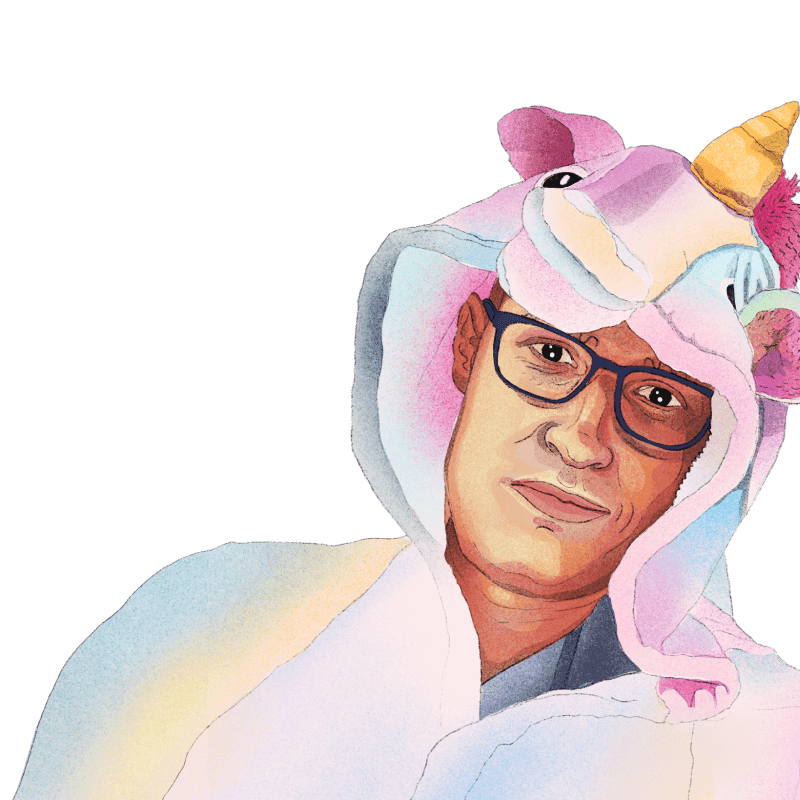How Risotto got into Y Combinator and built an AI product
Mar 25, 2024

Each month, we speak to a team enrolled in PostHog for Startups about the way they work. This time, we spoke to Risotto, an AI-powered IT helpdesk platform, about how they got into the world’s most successful startup accelerator.
Since launching in 2005 Y Combinator has grown to become not just the world’s most successful accelerator, but also the most competitive. Every year the batches get bigger, and every year the demand for spaces outpaces the supply.
This year has been especially competitive for, with the surging popularity of AI meaning that AI products make up approximately 40% of the batch.
Risotto is one of them. So, we spoke to co-founder and CEO Aron Solberg about how his team got into one of the most competitive Y Combinator batches ever.
1. They had a clear idea and stuck to it
It’s not unheard of for teams in Y Combinator to pivot or completely abandon their initial idea and develop wholly new products. PostHog, for example, pivoted five times before landing on the final concept!
On the other hand, Risotto’s founders always had a clear idea what they wanted to build and they’ve stuck to it throughout the batch. Pivoting is fine, but certainty counts too!
“We’ve stayed with the same idea the whole time because we have an incredible amount of conviction in what we’re building,” says Aron. “We knew right from the start that we wanted to start with IT service management and move into enterprise service management. We wanted to bring our model to the entire enterprise organization and we’re still focused on that goal.”
2. They had deep domain expertise
Part of the reason the team had such conviction in their vision was due to the deep experience they had in the sector. One of Aron’s co-founders, Alex, had previously led IT engineering at both Dropbox and Gusto, while Aron had experience in machine learning from his time at Grammarly.
“Alex has seen all of the potential solutions out there,” says Aron. “None of them work the way they should and often they just cause new problems. That’s how we knew what to build: Risotto is the product Alex always wanted but was never able to find.”
3. They got the timing right
AI technologies are in vogue right now, and that obviously doesn’t hurt when it comes to attracting investment and interest.
“Waves of newly minted future unicorns tend to come after a technological revolution,” says Aron. “There’s been a momentous technological shift and that has opened the way for startups to move quickly, adopt them, and outpace the incumbents.”
The fact that so many of these potential unicorns are gathered within Y Combinator isn’t just a reflection of investor optimism, however — it’s also an opportunity for founders to learn from each other.
“Talent likes to cluster near other talent, so when you’re in a close community of people who have the same interests, expertise, and drive? That opens up so many opportunities for learning, progress, and networking. That’s a big part of why we wanted to join Y Combinator!”
4. They had a product well-suited to AI disruption
“When I talk about disruption what I mean is the ability to challenge incumbents by taking advantage of new technologies to build a better product,” says Aron.
For Risotto that incumbent is ServiceNow, a $160bn company trusted by over 7,500 enterprises. Aron and his co-founders believe they can disrupt ServiceNow by combining Slack and AI to build a new type of helpdesk solution.
“Employees in an organization already want to be in Slack and they want to work in intuitive tools instead of through complex standalone platforms,” Aron explains. “AI enables us to do that. The natural language interface means employees can ask questions and get problems solved through the tools they already use. We can meet them where they already are.”
5. They were familiar with the Y Combinator community
The final ingredient, according to Aron, was that the founding team was singularly driven to get into Y Combinator due to a deep history with the program.
“Y Combinator was always our first choice,” says Aron. “Alex, Chris, and I all met at HelloSign, which was also launched out of YC in the W11 batch. It was always highest on our list because of that experience and the respect that HelloSign’s founders had for YC.”
The increased investments which Y Combinator now makes in each startup also helped to seal the deal, as it enabled Aron, Chris, and Alex to quit their jobs and focus wholly on building Risotto.
“I’m glad we did,” continues Aron. “It’s been a fantastic experience and has exceeded my expectations in many ways. The team, the support, the encouragement you get... it’s all just incredible. We’re so humbled and honored to have got in when we did!”
More success stories from PostHog for Startups
- How BeforeSunset AI achieved 'Product of the Month' on Product Hunt
- How Bugprove uses influencer marketing to grow word of mouth
- How Documenso got 4,000 stars and grew an active GitHub community
